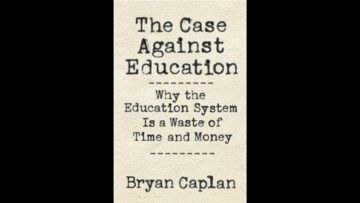by Fabio Tollon

“How do you get a philosophy major away from your front door? You pay them for the pizza.”
As a doctoral candidate in philosophy people often ask me what I am going to “do” with my degree. That is, how will I get a job and be a good, productive little bourgeoisie worker. How will I contribute to society, and how will my degree (which of course was spent thinking about the meaning of “meaning”, whether reality is real, and how rigid designation works) benefit anybody. I have heard many variations on the theme of the apparent uselessness of philosophy. Now, I think philosophy has a great many uses, both in itself and pragmatically. Of concern here, however, is whether not just philosophy, but education in general might be (mostly) useless.
If you are like me, then you think education matters. Education is important, should be funded and encouraged, and it generally improves the well-being of individuals, communities, and countries. It is with this preconception that I went head-first into Bryan Caplan’s well written (and often wonderfully irreverent) The Case Against Education, where he argues that we waste trillions in taxpayer revenue when we throw it at our mostly inefficient education system. Caplan does not take issue with education as such, but rather the very specific form that education has taken in the 21st century. Who hasn’t sat bored in a class and wondered whether circle geometry would have any bearing on one’s employability?
As the title suggests, this is not a book that is kind in its assessment of the current state of education. While standard theory in labour economics argues that education has large positive effects on human capital, Caplan claims that its effect is meagre. In contrast to “human capital purists”, Caplan argues that the function of education is to signal three things: intelligence, conscientiousness, and conformity. Education does not develop students’ skills to a great degree, but rather seeks to magnify their ability to signal the aforementioned traits to potential employers effectively. Read more »
